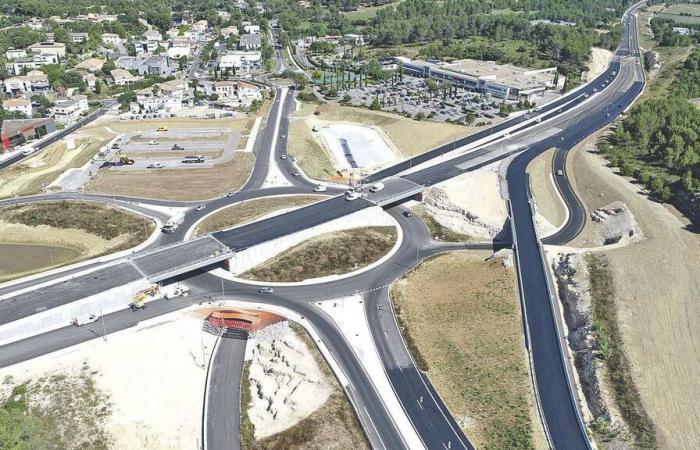After three years of work, the southern interchange of Saint-Gely-du-Fesc (Hérault) was inaugurated on October 1. This is the first market of the last phase which must complete the intercommunal northern bypass link (Link) from Montpellier over 7.8 km to the A750 at Bel-Air. This includes a hopper at the lower level which provides the connection between Ganges and Montpellier. It is topped by a roundabout serving Saint-Gély-du-Fesc and the access ramps to the Link which will pass above it.
“The choice of a three-level interchange minimizes the footprint and therefore the environmental impacts, knowing that the compensatory measures of the Link represent 374 ha, i.e. an area more than doubled compared to regulatory requirements,” recalls Yannick Lhuissier, territorial director at roads and mobility center of the department. The desire to set an example was also demonstrated by a balance between excavation and embankment, the monitoring of an environmental coordinator and virtuous developments (sound-proof coatings, landscape and geo-morphological treatment of road embankments promoting plant recovery).
Still more works to create. Guintoli, NGE and Casal are currently carrying out the works for the new road between the Bel-Air interchange and the Mosson river, including a 70 m long crossing, with a view to delivery in the summer of 2025. The The work budget on the current section amounts to €93 million including tax, including €27 million for the Saint-Gély interchange. “There are still some structures to create between the Mosson and Saint-Gély-du-Fesc, earthworks and a new roadway. Depending on the decisions made at the end of 2024, these projects could start in the second half of 2025,” announces Yannick Lhuissier.
If the Link is still the subject of disputes relating to certain authorizations for protected species, the Council of State ruled in favor of the departmental council concerning the declaration of public utility. “Launched in 1991, this project should be completed at the end of 2027. Complementary to the future western bypass of Montpellier, it will reduce traffic jams and irrigate the northern municipalities,” highlights Yann Letroublon, director of the department’s roads and mobility division.






